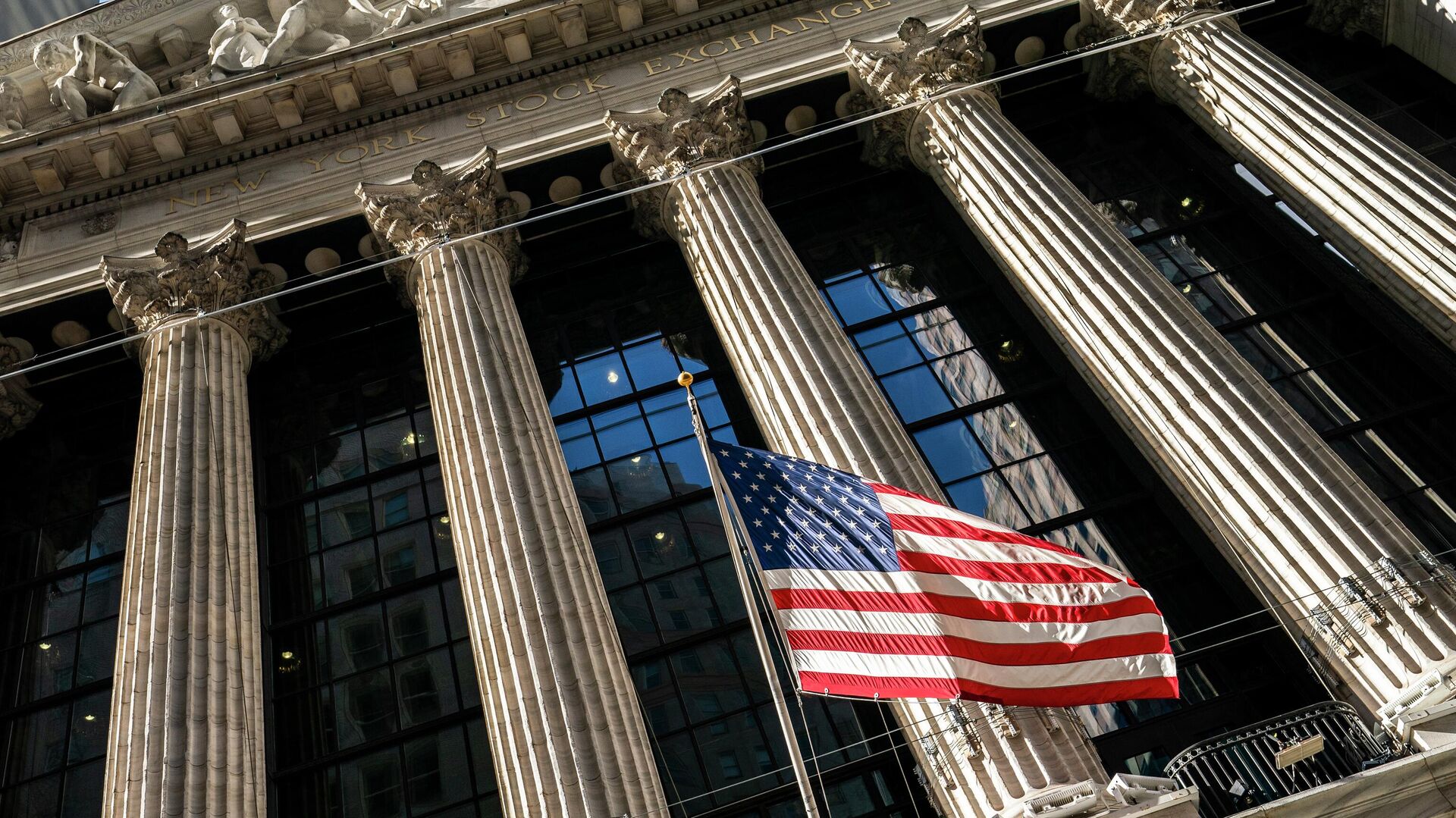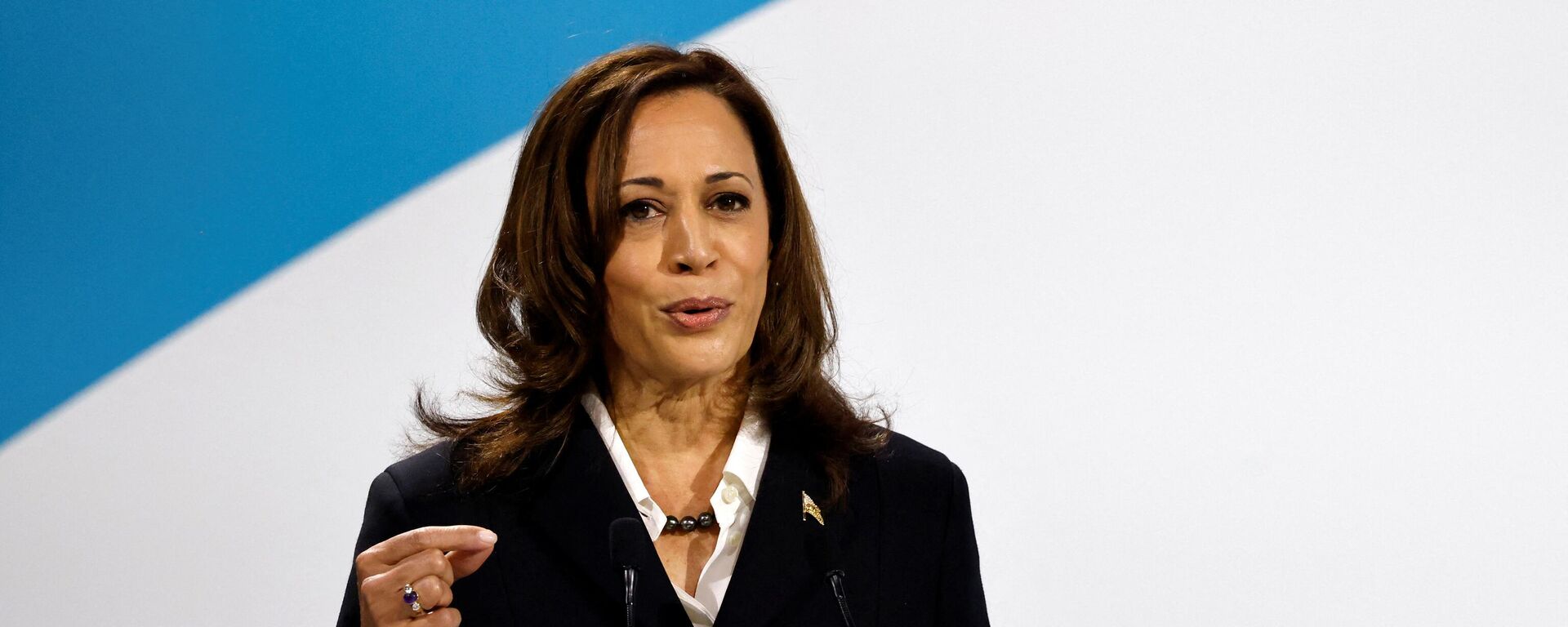What a Stunning Miscalculation Says About American Economy

© AP Photo / John Minchillo
Subscribe
A lightning bolt came from the US Bureau of Labor Statistics, which announced on August 21 that the total amount of new jobs created in the 12-month period from March 2023 had been overreported. The bureau stated that an estimated 818,000 announced new jobs in fact had not been created. That is a stunning miscalculation.
Viewed another way, previous estimates suggested that there were as many as 242,000 new jobs created per month, however, the actual figure was closer to 174,000, or roughly 30 percent less. There are plenty of questions being asked as to how an error of that magnitude could have taken place.
Although a cover-up is not likely to be the cause of the overinflated job numbers, there is no doubt that the US economy is not as strong as many politicians would like it to be. Just last month, unemployment rose to 4.3 percent, another barometer of weakness. The poor job growth data should spur the Federal Reserve to reduce interest rates in the coming weeks, a move that might help fend off a recession. But at least one prominent economist says no matter what the Federal Reserve does and no matter how many jobs are actually created, the US will enter a recession early next year. Another economist put it more bluntly, saying, "Once you start to worry about recession, you are usually in a recession."
Less than a month ago, CNN suggested the economy was "pulling off something historic" with second quarter growth announced at 2.8 percent and consumer spending remaining strong. The World Bank also got caught up in the excitement, claiming that the "impressive" economy was carrying the world.
Although a cover-up is not likely to be the cause of the overinflated job numbers, there is no doubt that the US economy is not as strong as many politicians would like it to be. Just last month, unemployment rose to 4.3 percent, another barometer of weakness. The poor job growth data should spur the Federal Reserve to reduce interest rates in the coming weeks, a move that might help fend off a recession. But at least one prominent economist says no matter what the Federal Reserve does and no matter how many jobs are actually created, the US will enter a recession early next year. Another economist put it more bluntly, saying, "Once you start to worry about recession, you are usually in a recession."
Less than a month ago, CNN suggested the economy was "pulling off something historic" with second quarter growth announced at 2.8 percent and consumer spending remaining strong. The World Bank also got caught up in the excitement, claiming that the "impressive" economy was carrying the world.
All previous comments relating to a robust American economy now must be taken with a grain of salt; the bitter reality is the economy seems certain to face rough waters in the coming months.
Lost in all of that rhetoric was any acknowledgment that China's economy remains on pace to grow at roughly 5 percent this year. The World Economic Forum recently reviewed China's economic prospects and found at least two areas of optimism: "China's expanding clean energy sector accounted for an estimated 40% of the country's economic expansion in 2023. Meanwhile, private sector spending on research and development has doubled in the past five years." Along the same lines, the International Monetary Fund stated China's economy remains on firm footing.
China has acknowledged headwinds in its economy and short- and long-term growth estimates will not remain at levels seen over the past decade or so, but there is no reason to doubt it will continue to grow at a pace exceeding any Western nation. However, to take just one example, instead of recognizing how China's move to high-quality production with an emphasis on items that are good for the climate, the same old negative reporting about the country dominates the Western media headlines. One US newspaper argued that China's economy had "slowed sharply" in recent months.
Lost in all of that rhetoric was any acknowledgment that China's economy remains on pace to grow at roughly 5 percent this year. The World Economic Forum recently reviewed China's economic prospects and found at least two areas of optimism: "China's expanding clean energy sector accounted for an estimated 40% of the country's economic expansion in 2023. Meanwhile, private sector spending on research and development has doubled in the past five years." Along the same lines, the International Monetary Fund stated China's economy remains on firm footing.
China has acknowledged headwinds in its economy and short- and long-term growth estimates will not remain at levels seen over the past decade or so, but there is no reason to doubt it will continue to grow at a pace exceeding any Western nation. However, to take just one example, instead of recognizing how China's move to high-quality production with an emphasis on items that are good for the climate, the same old negative reporting about the country dominates the Western media headlines. One US newspaper argued that China's economy had "slowed sharply" in recent months.
Meanwhile, not enough attention has been given to the painful truth that the tariffs handed down by former president Donald Trump and which current President Joe Biden has refused to get rid of are damaging both economies, and the American people are feeling the worst effects.
Granted, there is a risk at taking any one data point and inflating its value. A weak jobs report does not allow for the leap to a conclusion that a recession is an absolute certainty. Nevertheless, as recent analysis from the Financial Times noted, the poorest of Americans continue to pay more for the items critical to their existence and that group is also the most worried about any economic downturn costing them their jobs. FT concluded that "it is probably best to exercise caution when citing US national statistics as evidence of a strong economy," especially in a time when a strong stock market can provide false assurances of its overall health.
The various data points allow for two conclusions, and a reference to the just concluded Summer Olympics might be apt.
Imagine the US and Chinese economies are racing in the 110-meter hurdles. The US economy continues to knock over and be tripped up by the hurdles, while the Chinese economy, perhaps not running as fast as it has in the past, is successfully jumping over each hurdle.
Granted, there is a risk at taking any one data point and inflating its value. A weak jobs report does not allow for the leap to a conclusion that a recession is an absolute certainty. Nevertheless, as recent analysis from the Financial Times noted, the poorest of Americans continue to pay more for the items critical to their existence and that group is also the most worried about any economic downturn costing them their jobs. FT concluded that "it is probably best to exercise caution when citing US national statistics as evidence of a strong economy," especially in a time when a strong stock market can provide false assurances of its overall health.
The various data points allow for two conclusions, and a reference to the just concluded Summer Olympics might be apt.
Imagine the US and Chinese economies are racing in the 110-meter hurdles. The US economy continues to knock over and be tripped up by the hurdles, while the Chinese economy, perhaps not running as fast as it has in the past, is successfully jumping over each hurdle.



